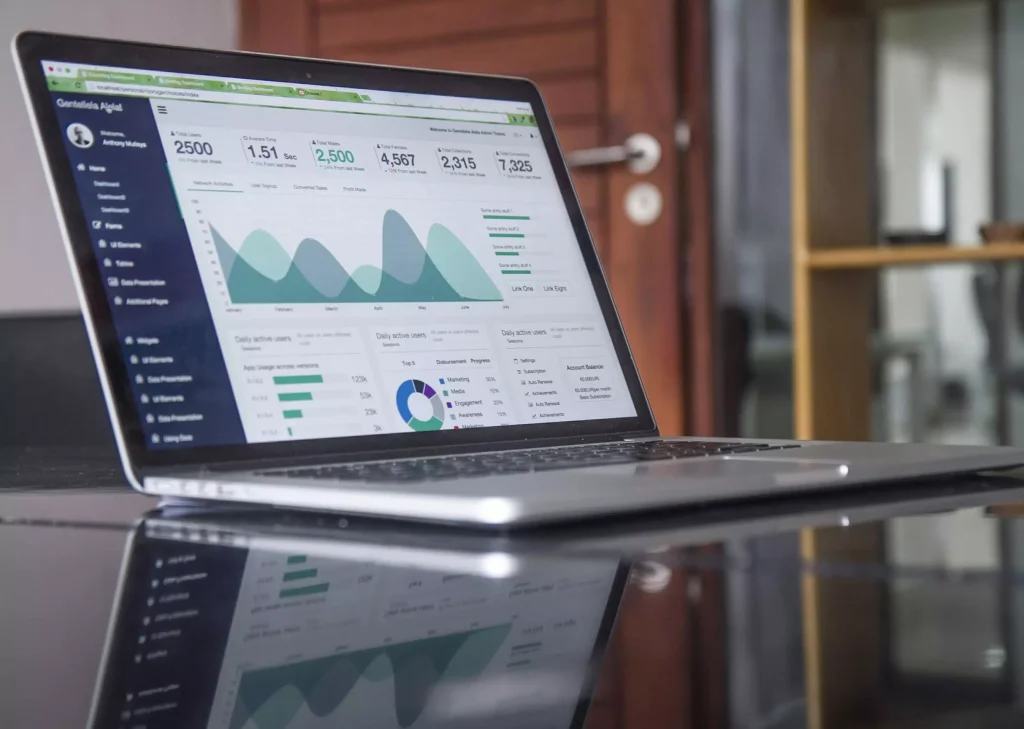As a result of inflation, prices for goods and services purchased by consumers in March 2022 are 8.5% higher than those paid by consumers in March 2021. You can lessen the impact that inflation has on the finances of your household by lowering the amount you spend on groceries and transportation, conducting a budget review, and staying away from debt.
Households in the United States are feeling the effects of increased financial strain due to inflation. According to the data provided by the United States Bureau of Labor Statistics, consumers are currently paying 8.5 percent more for goods and services than they did in March 2021. This represents the highest rate of inflation over a period of one year since 1981.
Cost increases make it more difficult for individuals to pay for their expenses and reduce the purchasing power of money that has been saved. Economists at Bloomberg estimate that households in the United States are forking over an additional $433 each month, which amounts to an additional $5,200 annually, due to the effects of inflation. And the burden is especially heavy for low-income households because those households spend a greater proportion of their income on housing, groceries, energy, and transportation.
Make adjustments to your spending plan in order to save money wherever you can be of assistance to you in the face of increased costs. Here are some ways to start saving money right away to combat inflation.
Look for ways to cut costs

By carefully examining your invoices, eliminating everything you don’t need, and attempting to lower or negotiate the remaining amounts, you might be able to offset some of the increase in your spending. Consumer financial expert Andrea Woroch advises that a simple place to start is by taking a look at all of your invoices. When we first buy something, like insurance, we frequently browse around for the cheapest price, but over time the price increases and you don’t continue to compare prices, she claims.
Regular expenses that could be lowered or eliminated include: Telephone, Internet, Car, and Home Insurance
A prepaid service package is one potential strategy to reduce your phone expense, according to Woroch. WI-FI is widely available, thus an unlimited data package might not be required. You don’t require limitless data, therefore a less expensive package would definitely work better for you. So why make that additional payment? Woroch opined. One example is Mint Mobile, which offers 4 GB of data and unlimited call and text for as little as $15 per line per month.
Reviewing your insurance plan could also reveal significant savings. Woroch realized that her monthly mortgage payment had gone up by $50 and discovered that her homeowner’s insurance had also increased. When she called her insurer, she claims she was able to get “better coverage for less… it was just a little over $1,000 less.” She even reduced the cost by $200 by raising her deductible because she had the money in savings to pay for a higher deductible.
Monitor Expenses

Even though going through your bills and eliminating everything superfluous is a smart place to start, you’ll still need to purchase necessities like food, petrol, and lodging, all of which are more expensive.
Becoming more frugal with your grocery purchases will enable you to save money. Produce waste in American families amounts to $1,600 on average per year, according to a survey by the waste management consultancy company RTS.
A quick approach to becoming more adept at grocery shopping is meal planning. Plan ahead for the nights you’ll be at home and the days you or the kids will need to pack a lunch for work or school by taking a look at your calendar. Look for recipes using the same components, she advises. You’ll be more likely to finish that entire bag of potatoes or a bunch of fresh parsley if you do it this way.
In order to save money, you can also use discounts, cashback credit cards, and cashback portals. According to Woroch, using these cashback tools and applications on top of the rewards you already receive from your credit card is a simple way to earn extra money. Woroch has searched for bargains using websites like CouponFollow.com. To find out which cashback and rewards sites offer the greatest benefits near the stores you wish to visit, use Cashback Monitor.
Buying used furniture, home items, or apparel at significant savings is another option. A nice site to find local goods for sale is Facebook Marketplace. Additionally, Woroch lists websites like Poshmark, Swap.com, and Tradsey. The Swindle Society even has a garment exchange, according to her.
Purchase stocks (Invest in stocks)

Despite the general lack of faith in stocks that most people express, holding some stocks can be a very effective method to fight inflation. Consider your home as a business. A business will also be affected by inflation if it cannot appropriately invest its funds in endeavors that will provide returns greater than their costs. The fundamental tenet of business success is that companies will sell their products for higher prices, which will inevitably result in higher revenues, earnings, and stock prices.
Some of the finest stocks to hold during an inflationary environment would belong to businesses that can naturally raise their pricing. Commodity resource corporations are one illustration. During times of inflation, goods like metals, wheat, and oil have strong pricing power. As opposed to, say, the price of a computer, which is subject to manufacturer and distributor pricing revisions, the prices of these things typically increase with time.
Purchase a Home (Invest in a home)

Real estate is always a wise investment if it is done correctly, such as purchasing a home to live in. When a buyer intends to sell the home they have purchased for a profit, problems arise. The normal individual should concentrate on buying a home with the intention of owning it, even if just for a few years, even though seasoned real estate investors are able to uncover hidden values in properties. Real estate investments normally take a long time to pay off; value increases usually take place over a number of months or weeks.
If you’re buying a home, you probably won’t pay cash; instead, you’ll need to put some money down and get a loan called a mortgage to cover the remaining balance. Although there are many different kinds of mortgages—fixed-rate and adjustable mortgages are the most popular—the basic idea is the same. You pay down a small portion of the principal each month until you own a debt-free item that will hopefully increase in value over time.
In the event that rates rise, getting a fixed-rate mortgage allows you to pay off future debt with cheaper money. You are nevertheless still liable for the predetermined sum even if rates fall. To choose the best mortgage choice for you, consider a number of variables.
Similar to land, the value of homes typically rises on an annual basis. It is true that corrective periods frequently follow real estate bubbles, with some homes losing more than 50% of their value. Nevertheless, housing costs typically rise over time, offsetting the impacts of inflation.
Request a raise

In the job market of today, employees have more authority than they have had in a long time. Take advantage of that.
According to Matt Atwood, a certified financial advisor at TimeWise Financial, “you have the most bountiful employment market in your lifetime available right now.” “Make sure you receive fair compensation for your role.” To find out how your compensation stacks up against others in your sector, do some research utilizing a website like Payscale.
Ask for a cost-of-living adjustment at the very least, ideally one that is around 10% or so to stay up with inflation. Additionally, it could be time to update your resume and hunt for a new job if your manager is unable or unable to raise your wage. It’s impossible to predict how long the employment market will remain favorable for workers, but it never hurts to look around to see what else is available.
If you don’t get a fair response to your request for a raise, Atwood advises, “then take advantage of the labor market.”
Get money back on all other purchases

Install a browser extension like Rakuten, which offers cash back on purchases, for even greater savings on necessities like pet food and groceries. The amount you’ll recover varies for every store, but commonplace retailers like Chewy, Target, and Walmart provide 1%. Some retailers give customers even more cashback; as of the time of writing, Old Navy was giving customers 2% cash back and Nike, a whopping 10%. Although it may not seem like much, everything adds up.
Take advantage of cash-back cards if you have strong credit and pay off your credit card balance in full each month.
Ted Rossman, the senior industry analyst at Bankrate.com, advises consumers to “think about where they spend the most of their money and attempt to maximize those categories,” noting that he utilizes the American Express Blue Cash Preferred for its 6% cash back at American supermarkets. Numerous cards provide 3 to 5 percent cash back on other well-known categories including travel, eating, petrol, internet shopping, and more. To find the best options for your household, utilize a website like Bankrate or NerdWallet.
Additionally, search for shopping discounts on the website of your credit card company. Along with cash back, several card issuers, like American Express, Bank of America, Chase, and Capital One, also give cardholders exclusive discounts at particular shops. By login onto your credit account, you can locate these promotions, which differ depending on the provider and location.
Although you have no influence over growing prices, Woroch advises using cash-back systems to maximize the rewards you receive from credit card use.
Run a Budget Check

Since your goals and spending patterns change over time, it is usually a good idea to audit your budget on a regular basis. Evaluation of your spending and the inclusion of savings into your budget becomes even more important when sudden price spikes make it difficult to maintain your current standard of living.
Examine how your spending compares to your objectives if you are currently keeping track of your spending in a spreadsheet or budgeting program. Are you staying inside your budget if you’ve established restrictions for particular categories? If you find that you are living beyond your means, either alter your spending goals to make sure you are allocating enough to each category or decide to cut back on spending. If you don’t already have one, you should start using one right now.
Look for places to make savings. Do you pay for a gym membership that you never go to? spending money on numerous subscription services you don’t require? spending more on retail than your budget will allow? You can experience an immediate increase in cash flow if you spend less on these luxuries.
By haggling over your utility bills, membership dues, cable, phone, and internet bills, you may also try to reduce your daily spending and energy costs.
Beware of shadow inflation and shrinkflation

Rob Stevens, a financial planning consultant at TIAA, warns consumers to watch out for “shrinkflation,” which happens when businesses provide customers with less of their products for the same or higher price. This happens frequently at the supermarket and could result in fewer pretzels in a bag or less aluminum foil on a roll.
To counteract this, Stevens advises purchasing generic goods, which are generally quicker to use than branded brands.
Shadow inflation, or a reduction in the quality of a service or good, is another inflation-related side effect to be on the lookout for. A hotel might stop offering complimentary daily clean towels or a sizable continental breakfast, for instance. It’s possible that your favorite Tex-Mex restaurant will start charging for the salsa and chips that were previously free. In essence, you’re receiving less for your money in terms of amenities or service quality.
Official measurements of these quality changes are challenging, and they aren’t counted in the government’s figures on inflation. Additionally, there isn’t much you can do to combat shadow inflation other than to be aware of it and avoid getting slammed with unforeseen fees that might increase the cost of your meal at the restaurant.
What It All Comes Down To

Costs for necessities including shelter, energy, food, and transportation increase as a result of inflation. If your budget is tight, develop a plan to reduce expenses wherever you can. Stress due to the economy may make managing credit more challenging. With Experian’s free credit monitoring, you can keep track of your credit report and see how elements like your payment history and credit utilization ratio affect your score.
Read more articles in the Business Category
